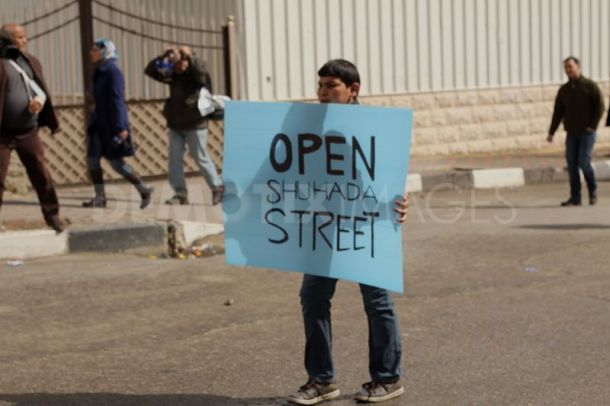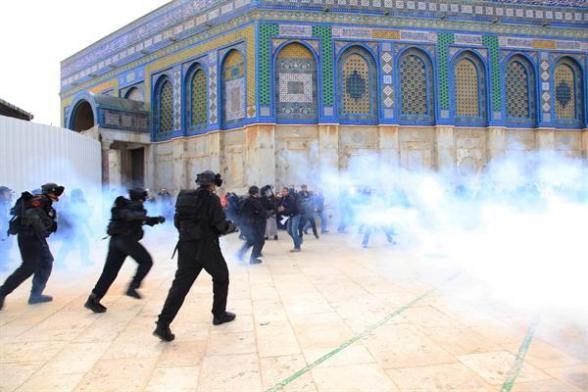Tag: Video
-
We Are With Hana Shalabi and Al Aqsa: Demonstration in the No Go Zone in Beit Hanoun
by Nathan Stuckey 29 February 2012 | International Solidarity Movement, Gaza Israeli riot police have entered the Al Aqsa Mosque Compound, Palestinians have struggling to protect it for days. After 66 days Khader Adnan has ended his hunger strike, hopefully, soon, he will be home with his family. Even before his hunger strike ended the…
-
In Photos: Clashes in Hebron’s Old city during a ‘Open Shudada Street’ rally
by Emilie Baujard 24 February 2012 | Demotix Hundreds of Palestinian and international activists protest in Hebron calling for the city’s al-Shuhada Street to be opened up to Palestinian traffic. The Israeli Army dispersed the protestors with stun grenades and tear gas. The Israeli Army entered the Old City to disperse the demonstration. Palestinian youth…
-
Israeli police clash with Palestinians in al-Aqsa, kill one
24 February 2012 | Press TV Clashes broke out after Israeli police fired tear gas and used stun grenades on hundreds of Palestinians who had gathered outside al-Aqsa Mosque following the Friday Prayers to protest against Israeli attacks on the holy site earlier this week. One man was killed amid protests in nearby Qalandia following…



